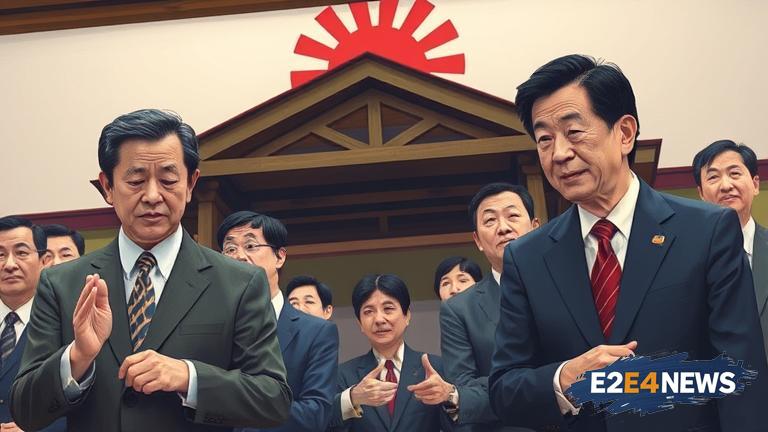Japan’s ruling coalition, led by Prime Minister Fumio Kishida, has lost control of the upper house of parliament, according to a report by NHK. This significant setback is expected to impact the government’s ability to pass legislation. The upper house, also known as the House of Councillors, plays a crucial role in the Japanese legislative process. The ruling coalition, which includes the Liberal Democratic Party (LDP) and its junior partner Komeito, had previously held a majority in the upper house. However, the recent election results indicate that the coalition has lost its grip on the chamber. The opposition parties, including the Constitutional Democratic Party and the Japanese Communist Party, have made significant gains in the election. The loss of control of the upper house is a major blow to Prime Minister Kishida, who has been struggling to maintain public support. The government’s popularity has been declining in recent months, due in part to rising inflation and a stagnant economy. The upper house election was seen as a referendum on the government’s performance, and the results suggest that voters are dissatisfied with the current administration. The opposition parties have vowed to work together to block the government’s legislative agenda, which could lead to a period of political gridlock. The loss of control of the upper house also raises questions about the future of Prime Minister Kishida’s leadership. The LDP has been in power for most of the post-war period, and the loss of control of the upper house is a significant setback for the party. The election results are also expected to impact the government’s ability to implement its policy agenda, including its plans for economic reform and defense spending. The government will need to work with the opposition parties to pass legislation, which could lead to a more consensus-based approach to policymaking. The upper house election has also highlighted the growing divide between the ruling coalition and the opposition parties, with the opposition parties calling for greater transparency and accountability in government. The election results are seen as a wake-up call for the government, which will need to reassess its priorities and work to regain public trust. The loss of control of the upper house is a significant development in Japanese politics, and it will be closely watched by investors and analysts in the coming weeks and months.
